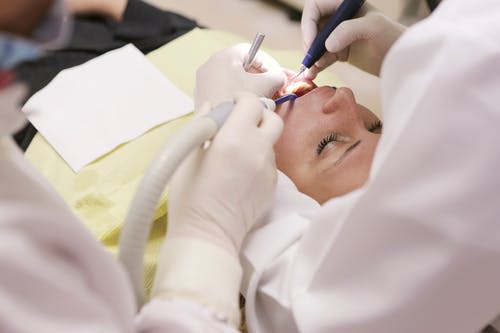
When we hear the term “oral surgery,” it often brings to mind something serious or intense. However, oral surgery encompasses a wide range of procedures that address issues within the mouth and jaw area. Oral surgeons, specialists in maxillofacial surgery, play a crucial role in the diagnosis and treatment of various conditions. From wisdom tooth extraction to correcting jaw problems, these medical professionals are equipped to handle a multitude of conditions that your general dentist might not be able to address.
The world of oral surgery can be intricate and diverse, offering solutions to many dental woes. In this article, we’ll explore the common procedures performed by oral surgeons, ensuring you’re well-informed should you ever need their expertise.
Wisdom Tooth Removal
One of the most familiar procedures associated with oral surgery is the removal of wisdom teeth. These third molars often emerge in our late teens or early twenties and can cause a plethora of issues if they are impacted or misaligned. Oral surgeons are routinely called upon to extract wisdom teeth that are causing pain, have the potential to cause misalignment of other teeth, or are otherwise problematic.
- Preventative removal to avoid future complications
- Extraction of impacted wisdom teeth to alleviate pain and infection
- Assessment and minimization of potential damage to surrounding teeth and bone
Dental Implants
Dental implants are another area of expertise for oral surgeons. Whether you’ve lost a tooth due to injury, decay, or disease, dental implants offer a long-lasting and aesthetically pleasing solution. The process involves the implantation of a metal post into the jawbone, which acts as an anchor for a prosthetic tooth. This can involve a single tooth or multiple teeth, and it requires a surgeon’s precision to ensure successful placement.
Bone Grafting for Dental Implants
In cases where the jawbone isn’t thick enough or is too soft, a bone graft may be necessary before installing implants. This is a procedure in which the surgeon transplants bone tissue to provide a more solid foundation for the implant, ensuring its durability and stability.
Corrective Jaw Surgery
Oral surgeons often undertake corrective jaw surgery, also known as orthognathic surgery, to rectify a range of skeletal and dental irregularities, including the misalignment of jaws and teeth. This surgery can improve chewing, speaking, and breathing and is often employed when orthodontic treatment alone is insufficient to correct the problem.
- Alignment of the jaw
- Modification of bone structure
- Improvement of facial appearance
Treatment of Facial Injuries
Whether it’s a broken jaw or facial bone fractures, oral surgeons are the professionals you’d want on your side. These professionals are adept in the reconstruction and realignment of facial structures and teeth, ensuring that the natural aesthetics and functional aspects are restored as much as possible after an injury.
Reconstructive Surgery and Trauma Care
In cases of severe trauma, an oral surgeon may be called upon to perform intricate reconstructive surgeries. They work to repair complex facial injuries and restore the individual’s aesthetic look and functional capacity of their oral and maxillofacial region.
Pathology and Biopsy Procedures
An oral surgeon is also the point of call when there’s a suspicion of oral cancer or other pathological conditions. The surgeon will conduct a biopsy, which involves the removal of a small section of tissue to be analyzed in a laboratory. Early detection and swift treatment overseen by an oral surgeon can be lifesaving.
Apicoectomy Procedures
Sometimes, a root canal might not be enough to save a tooth. This is when an oral surgeon may perform an apicoectomy, which is the removal of the tip of the tooth’s root, to remove any infection and prevent further issues.
- Removal of infection at the root tip
- Preservation of the remaining tooth
Dental Care and General Dentistry
While oral surgeons focus on specific areas of concern, it’s essential to maintain regular dental care to prevent complications that may require surgical intervention. General and family dentist in Harrisonburg offer comprehensive dental services that cater to patients of all ages. They emphasize preventive care and are your primary defense against dental conditions that could escalate to require surgery.
Dental Exam/Cleaning
Regular dental exams and cleanings are vital to keeping your oral health on track and catching issues before they become serious. During these visits, dentists can spot early signs of conditions that might need the attention of an oral surgeon, thus ensuring timely referral and treatment.
Sleep Apnea and Snoring Treatments
Interestingly, oral surgeons are also involved in treating sleep-related issues such as sleep apnea and chronic snoring. By making adjustments to the structure of the mouth and throat, they can alleviate the symptoms and improve sleep quality.
- Assessment of airway obstruction
- Surgical options to promote better breathing during sleep
Invisalign and Orthodontic Surgery
Moving beyond traditional braces, oral surgeons sometimes work in conjunction with orthodontists to facilitate orthodontic procedures, like the installation of IV sedation for those who suffer from anxiety. Additionally, when considering aesthetic options, many turn to solutions like Invisalign. A key consideration for this choice is often the Invisalign cost in Harrisonburg, which varies based on individual treatment plans.
Final Thoughts
Oral surgeons are indispensable in the field of dental health, providing an array of procedures that extend far beyond teeth extraction. They help patients recover from accidents, fight diseases, and regain the full use of their oral faculties. By understanding the range of services these specialists provide, you can be well-prepared if you ever need their help. Remember, maintaining strong oral health through regular visits to your dentist is crucial in reducing your chances of needing oral surgery. Ultimately, oral surgeons are there to ensure that when the situation calls for specialized intervention, you are in the most capable hands for a swift and successful recovery.

